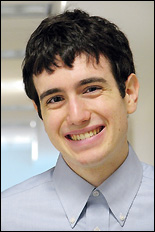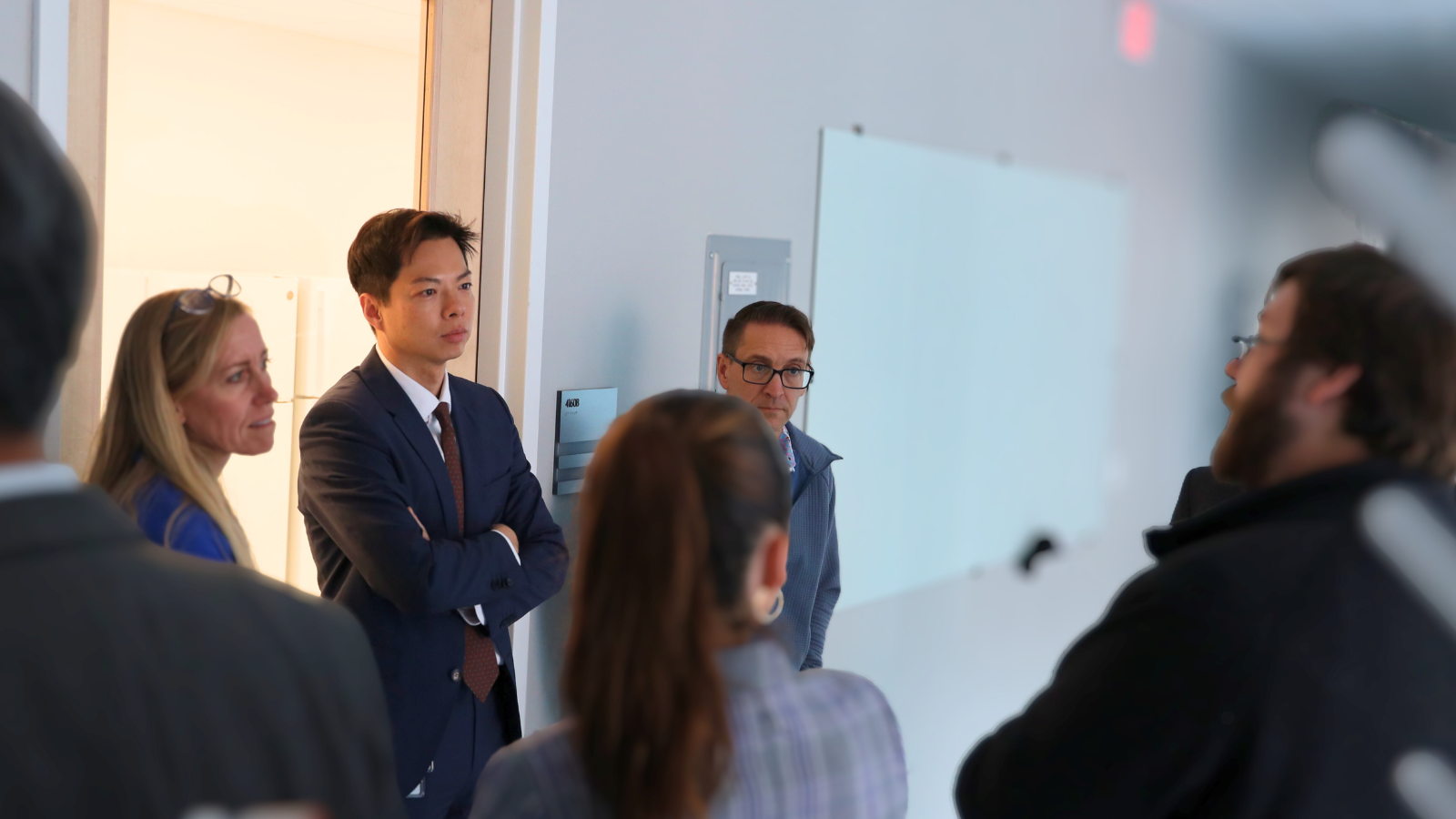News Story
BioE@UMD: Strong Performance in Bioethics Contest
Fischell Department of Bioengineering freshmen Yasmin Kadry, Mian Khalid, and Spencer Sokoloski were three of the five finalists in the Institute of Biological Engineering's (IBE) annual bioethics essay contest. Sokoloski took third prize for his essay "The Ethics of Biological Engineering: Community Versus the Individual," while Kadry and Khalid received Honorable Mentions. The students presented their essays at the IBE's annual conference in Atlanta, Ga. in March, where the winners were decided.
Over the four years the IBE has run the contest, Clark School bioengineering majors from the University of Maryland have dominated it, representing fourteen of the twenty total finalists and scoring two first place, a second place, and three third place wins.
In his essay, Sokoloski argued that it was crucial to invest first and foremost in addressing preventable health issues that affect entire communities or developing nations, such as epidemics and starvation. He compared the situation to plugging the leak in the sinking ship before pausing to bail out individual buckets of water. A strong, healthy community would ultimately be better equipped to address the problems of its individual members, he wrote.
"One of the things I enjoyed most about the conference was being able to meet a lot of grad students and being able to ask them some in-depth questions about their research," says Sokoloski. "They gave us some really good advice...it was really fun and exciting to get this kind of exposure to the bioengineering field as a freshman."
Kadry's essay, "The Application of the 'Reductionist Approach' to Solve Societal Health Problems and Develop New Health Technologies," advised a different approach to community health, stating that we can "[improve] the health of society by focusing on developing technologies for the betterment of individual health, rather than for the broader, less defined needs of whole communities, in order to bring about broader societal changes."
Kadry says attending the conference was "a memorable and rewarding experience," and adds that she particularly enjoyed networking with other bioengineers at all levels. "There were many seminars on topics from all aspects of bioengineering...allowing me to discover current trends and research...and helping me to gauge my interests and narrow my career goals. After hearing all of the essays read at the competition, I came to truly appreciate the complexity of the ethical dilemmas that face the field of bioengineering, and the plethora of possible solutions."
Like Sokoloski's essay, Khalid's essay, "Biological Engineering: Looking Beyond the Boundaries," discussed how a community-based approach for bioengineering technologies is more likely to impact a larger population. It argued for enhancing the effectiveness of existing technologies over the exploration of novel, more individualized solutions, and emphasized that bioengineers must begin by looking—and traveling—beyond their national borders in order to develop contextually relevant solutions to health problems that are being faced by impoverished communities around the world.
Khalid enjoyed meeting fellow bioengineering undergraduates from across the U.S. and Canada, as well as bioengineers from industry, and particularly enjoyed attending the conference's biosensor symposium. "...the IBE conference was fantastic in terms of exposing me to cutting-edge research," he says. "I was very excited to see...people researching topics ranging from biofuels to biosensors [to] biomolecular computing."
Learn More:
Visit the Institute of Biological Engineering web site »
Published April 17, 2011












